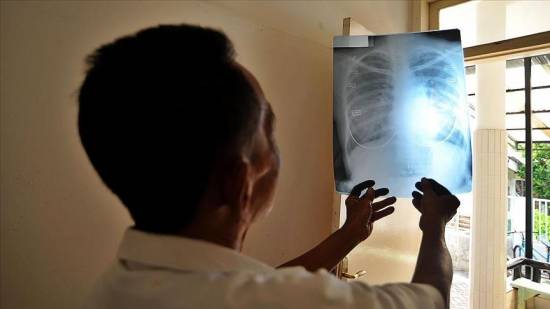WHO reports increase in tuberculosis deaths for 1st time in more than decade
The World Health Organization chief said Thursday that the world has lost ground in diagnosing and treating tuberculosis (TB).
The remarks from Tedros Adhanom Ghebreyesus come as the UN health agency reported an increase in deaths from the disease for the first time in more than a decade.
Speaking on World Tuberculosis Day, Tedros said the world needs to urgently reverse the trends and end preventable deaths and suffering by investing in the fight against the disease.
"Tuberculosis kills more than 1.5 million people each year and affects millions more, with enormous impacts on families and communities," he said. "Ending this debilitating disease remains a priority for the WHO, and in recent years, we have made encouraging progress globally. More than 66 million people received access to TB services since 2000.”
He said there is an urgent need to invest in the fight to achieve commitments made by global leaders.
"This is especially critical in the context of the COVID-19 pandemic, coupled with conflicts across Europe, Africa and the Middle East, which are disrupting services for TB and putting an even heavier burden on those affected," said the WHO chief.
Investments fall to less than half of global target from 2022
Tedros urged high-burden countries and the international community to urgently step up domestic and international investments to expand access to tools the world has and develop new ones.
Global spending on TB diagnostic, treatment and prevention services fell from $5.8 billion in 2019 to $5.3 billion last year -- less than half the global target of $13 billion annually by 2022.
"We need to more than double investments in research and development to drive discovery of new tools, including vaccines, and to scale up life-saving innovations," he said.
The WHO plans to convene a high-level summit later this year to intensify vaccine development and build on lessons from the coronavirus pandemic.
Like all investments in health, the WHO chief said investments will yield significant benefits through lives saved, health care costs averted and increased productivity.
He also urged all countries to restore and maintain essential TB services, even in the face of COVID-19 and other emergencies.
Such services should be delivered alongside services for COVID-19 and integrated into national pandemic preparedness plans, he said.
"We are especially concerned for the health of people with TB in Afghanistan, Ethiopia, Syria, Ukraine, and Yemen, where conflict is jeopardizing their access to services, and their very lives," said Tedros.
Given that Ukraine has a high burden of drug-resistant TB, the WHO is working to support access to care services, including refugees and displaced populations./aa


